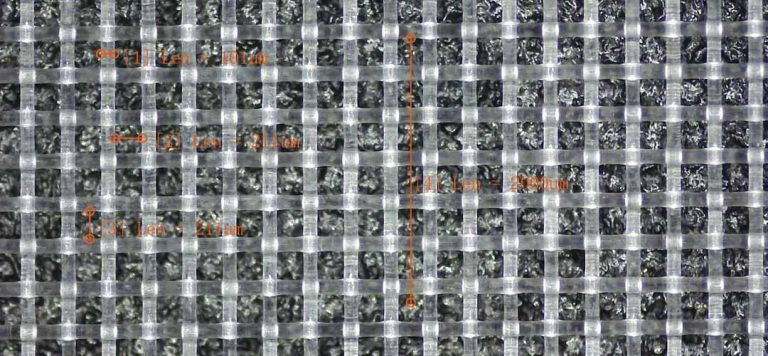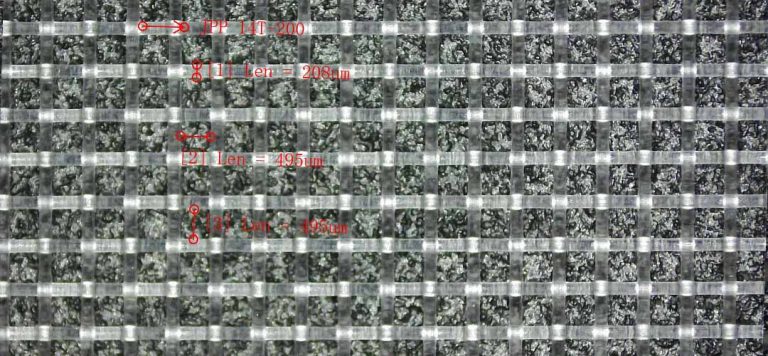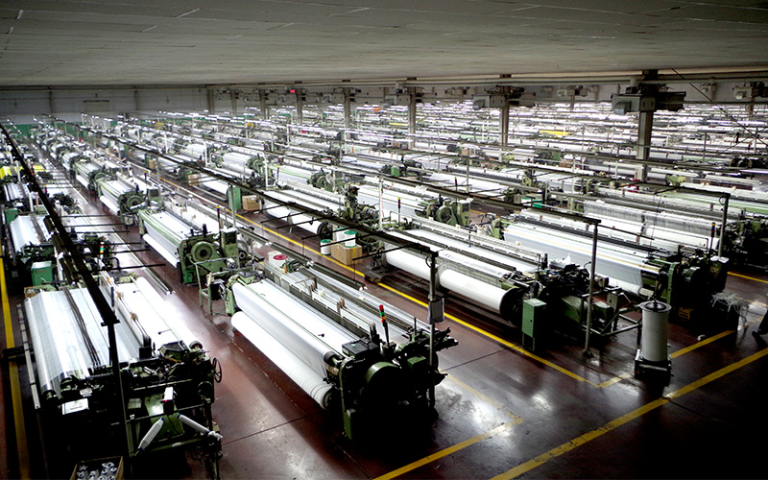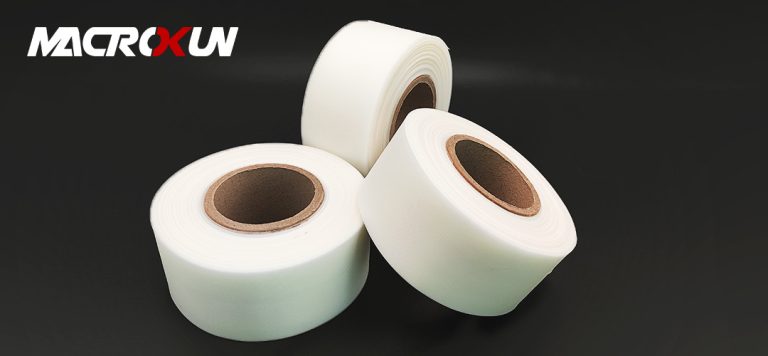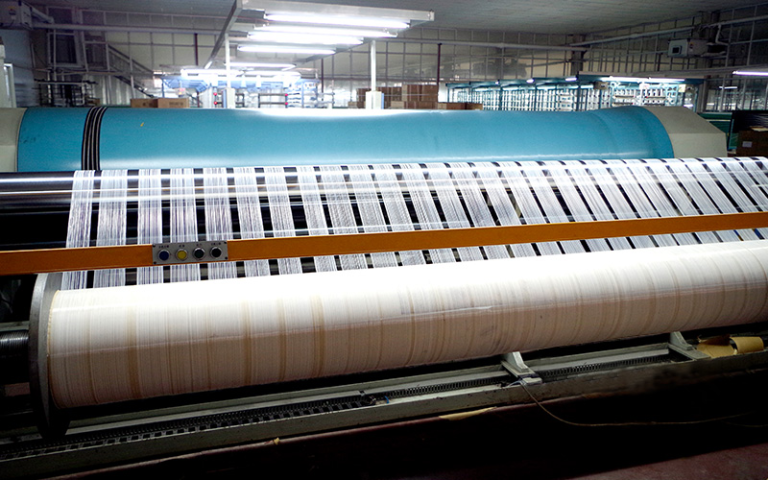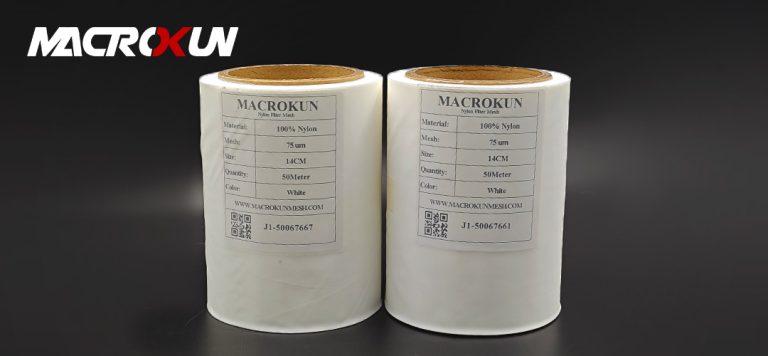Table of Contents
Benefits of Using fine mesh nylon fabric for Filtration Applications
Fine mesh nylon fabric is a versatile and lightweight material that is commonly used in a variety of filtration applications. Its unique properties make it an ideal choice for industries such as food and beverage, pharmaceuticals, and water treatment. In this article, we will explore the benefits of using fine mesh nylon fabric for filtration purposes.
One of the key advantages of fine mesh nylon fabric is its ability to effectively filter out particles of various sizes. The tightly woven mesh structure of the fabric allows it to capture even the smallest particles, making it an excellent choice for applications where high levels of filtration are required. This makes it particularly well-suited for industries that require precise filtration, such as the pharmaceutical and electronics industries.
In addition to its filtration capabilities, fine mesh nylon fabric is also highly durable and long-lasting. The strong nylon fibers are resistant to tearing and abrasion, ensuring that the fabric can withstand the rigors of continuous use. This durability makes it a cost-effective choice for filtration applications, as it can be used for extended periods without needing to be replaced.
| Model | Mesh Count (/cm) |
Mesh Count (/inch) |
Thread Dia (um) |
Mesh Opening (um) |
Thickness (um) |
Weight (g/m2) |
| NL4/1950 | 4 | 10 | 550 | 1950 | 1100 | 307 |
| NL5/1500 | 5 | 13 | 500 | 1500 | 1000 | 318 |
| NL6/1267 | 6 | 15 | 400 | 1267 | 800 | 244 |
| NL7/1079 | 7 | 18 | 350 | 1079 | 700 | 218 |
| NL8/900 | 8 | 20 | 350 | 900 | 700 | 249 |
| NL9/861 | 9 | 23 | 250 | 861 | 500 | 143 |
| NL9/811 | 9 | 23 | 300 | 811 | 600 | 206 |
| NL10/750 | 10 | 25 | 250 | 750 | 500 | 159 |
| NL10/700 | 10 | 25 | 300 | 700 | 600 | 229 |
| NL12/583 | 12 | 30 | 250 | 583 | 500 | 191 |
| NL12/533 | 12 | 30 | 300 | 533 | 600 | 274 |
| NL14/514 | 14 | 36 | 200 | 514 | 340 | 142 |
| NL16/425 | 16 | 40 | 200 | 425 | 340 | 160 |
| NL20/350 | 20 | 50 | 150 | 350 | 255 | 113 |
| NL20/300 | 20 | 50 | 200 | 300 | 340 | 200 |
| NL24/267 | 24 | 60 | 150 | 267 | 255 | 135 |
| NL28/237 | 28 | 70 | 120 | 237 | 204 | 101 |
| NL30/213 | 30 | 76 | 120 | 213 | 204 | 110 |
| NL32/213 | 32 | 80 | 100 | 213 | 170 | 80 |
| NL36/178 | 36 | 90 | 100 | 178 | 170 | 90 |
| NL40/150 | 40 | 100 | 100 | 150 | 170 | 100 |
| NL43/153 | 43 | 110 | 80 | 153 | 136 | 70 |
| NL48/128 | 48 | 120 | 80 | 128 | 136 | 77 |
| NL56/119 | 56 | 140 | 60 | 119 | 102 | 50 |
| NL64/96 | 64 | 160 | 60 | 96 | 102 | 58 |
| NL72/89 | 72 | 180 | 50 | 89 | 85 | 45 |
| NL80/75 | 80 | 200 | 50 | 75 | 85 | 50 |
| NL100/57 | 100 | 250 | 43 | 57 | 73 | 46 |
| NL110/48 | 110 | 280 | 43 | 48 | 73 | 52 |
| NL120/48 | 120 | 300 | 35 | 48 | 60 | 37 |
| NL120/40 | 120 | 300 | 43 | 40 | 73 | 55 |
| NL130/42 | 130 | 330 | 35 | 42 | 60 | 40 |
| NL130/34 | 130 | 330 | 43 | 34 | 73 | 61 |
| NL140/36 | 140 | 350 | 35 | 36 | 60 | 43 |
| NL157/25 | 157 | 400 | 43 | 25 | 73 | 74 |
| NL180/20 | 180 | 450 | 39 | 20 | 66 | 68 |
| NL200/15 | 200 | 500 | 39 | 15 | 66 | 76 |
| NL220/10 | 220 | 550 | 39 | 10 | 66 | 84 |
| NL240/5 | 240 | 600 | 39 | 5 | 66 | 91 |
Another benefit of fine mesh nylon fabric is its lightweight nature. Unlike some other filtration materials, such as metal or ceramic filters, nylon fabric is lightweight and easy to handle. This makes it easier to install and replace, reducing downtime and increasing efficiency in filtration processes. Additionally, the lightweight nature of the fabric makes it an ideal choice for applications where weight is a concern, such as in portable filtration systems.
Fine mesh nylon fabric is also highly versatile, with a wide range of mesh sizes and pore sizes available to suit different filtration requirements. This versatility allows for customization to meet specific filtration needs, ensuring that the fabric can effectively filter out the desired particles while allowing desired substances to pass through. Whether filtering out large particles in wastewater treatment or capturing fine particles in pharmaceutical production, fine mesh nylon fabric can be tailored to meet the unique needs of each application.
Furthermore, fine mesh nylon fabric is easy to clean and maintain, making it a convenient choice for filtration applications. The smooth surface of the fabric allows for easy removal of trapped particles, and the fabric can be washed or rinsed to restore its filtration efficiency. This ease of maintenance helps to prolong the life of the fabric and ensures consistent filtration performance over time.
In conclusion, fine mesh nylon fabric is a lightweight and versatile filtration solution that offers a range of benefits for a variety of industries. Its ability to effectively filter out particles of various sizes, combined with its durability, lightweight nature, and versatility, make it an ideal choice for applications where precise and efficient filtration is required. Whether used in food and beverage production, pharmaceutical manufacturing, or water treatment processes, fine mesh nylon fabric is a reliable and cost-effective option for achieving high-quality filtration results.
How Fine Mesh Nylon Fabric Compares to Other Filtration Materials
Fine mesh nylon fabric is a versatile and lightweight material that is commonly used for filtration purposes. Its fine mesh structure allows for the efficient separation of particles from liquids or gases, making it an ideal choice for a wide range of applications. In this article, we will explore how fine mesh nylon fabric compares to other filtration materials, highlighting its unique properties and advantages.

One of the key benefits of fine mesh nylon fabric is its durability. Unlike paper or other disposable filtration materials, nylon fabric can be reused multiple times without losing its effectiveness. This makes it a cost-effective option for industries that require frequent filtration processes. Additionally, nylon fabric is resistant to chemicals and abrasion, ensuring that it can withstand harsh operating conditions without deteriorating.
In terms of filtration efficiency, fine mesh nylon fabric excels at capturing small particles. The tightly woven mesh structure of nylon fabric allows it to trap particles as small as a few microns in size, making it an effective solution for applications that require high levels of filtration. This level of precision is particularly important in industries such as pharmaceuticals, food and beverage, and electronics manufacturing, where even the smallest contaminants can have a significant impact on product quality.
Compared to other filtration materials, such as paper or cotton, fine mesh nylon fabric offers superior strength and stability. Its high tensile strength and tear resistance ensure that it can withstand the pressure and flow rates commonly encountered in industrial filtration processes. This durability also extends to its resistance to temperature fluctuations, making nylon fabric a reliable choice for applications that involve extreme heat or cold.
Another advantage of fine mesh nylon fabric is its versatility. It can be easily customized to meet specific filtration requirements, such as pore size, thickness, and width. This flexibility allows for the creation of tailored filtration solutions that are optimized for a particular application. Additionally, nylon fabric can be coated or treated to enhance its performance in certain environments, further expanding its range of applications.
In terms of maintenance, fine mesh nylon fabric is easy to clean and maintain. Unlike some other filtration materials that require frequent replacement or disposal, nylon fabric can be washed and reused multiple times without losing its filtration efficiency. This not only reduces operating costs but also minimizes waste and environmental impact.
Overall, fine mesh nylon fabric offers a lightweight and versatile filtration solution that outperforms many other materials in terms of durability, efficiency, and customization. Its unique properties make it an ideal choice for a wide range of industries and applications, from water treatment to pharmaceutical manufacturing. Whether you are looking for a reliable and cost-effective filtration solution or a customized solution for a specific application, fine mesh nylon fabric is a versatile option that delivers consistent performance and value.
Tips for Proper Care and Maintenance of Fine Mesh Nylon Fabric
Fine mesh nylon fabric is a versatile material that is commonly used for filtration purposes due to its lightweight and durable nature. This type of fabric is made from synthetic fibers that are woven together to create a tight mesh pattern, allowing for the filtration of particles while still maintaining breathability. Fine mesh nylon fabric is commonly used in a variety of applications, including air and water filtration, as well as in the production of clothing and accessories.
Proper care and maintenance of fine mesh nylon fabric is essential to ensure its longevity and effectiveness. By following a few simple tips, you can keep your fine mesh nylon fabric in top condition for years to come.
One of the most important things to remember when caring for fine mesh nylon fabric is to avoid exposing it to harsh chemicals or abrasive materials. These can cause the fabric to break down over time, leading to tears and holes that can compromise its filtration capabilities. Instead, use a mild detergent and lukewarm water to clean your fine mesh nylon fabric, and avoid scrubbing or rubbing the fabric too vigorously.
When washing fine mesh nylon fabric, it is best to hand wash it rather than machine wash it. This will help to prevent the fabric from becoming tangled or stretched out, which can affect its ability to filter particles effectively. After washing, be sure to rinse the fabric thoroughly to remove any soap residue, as this can also impact its filtration capabilities.
After washing, allow your fine mesh nylon fabric to air dry completely before storing or using it again. Avoid using a dryer or hanging the fabric in direct sunlight, as this can cause the fabric to become brittle and lose its elasticity. Instead, lay the fabric flat on a clean surface and allow it to dry naturally.
If your fine mesh nylon fabric becomes stained or soiled, it is important to address the issue as soon as possible. Use a gentle stain remover or spot cleaner to treat the affected area, being careful not to scrub too hard or use too much product. After treating the stain, wash the fabric as usual to remove any remaining residue.
To prevent damage to your fine mesh nylon fabric, store it in a cool, dry place away from direct sunlight and moisture. Avoid folding or creasing the fabric, as this can cause it to lose its shape and elasticity. Instead, roll the fabric loosely and store it in a breathable container or bag to protect it from dust and debris.
By following these simple tips for proper care and maintenance, you can ensure that your fine mesh nylon fabric remains in top condition for years to come. With its lightweight and versatile nature, fine mesh nylon fabric is an excellent filtration solution for a variety of applications. By taking the time to care for your fabric properly, you can enjoy its benefits for years to come.
Creative Uses for Fine Mesh Nylon Fabric Beyond Filtration
Fine mesh nylon fabric is a versatile material that is commonly used for filtration purposes due to its lightweight and durable nature. However, this fabric can also be utilized in a variety of creative ways beyond filtration. In this article, we will explore some innovative uses for fine mesh nylon fabric that go beyond its traditional role.
One creative use for fine mesh nylon fabric is in the creation of insect screens. The fine mesh of the fabric is ideal for keeping out pesky insects while still allowing air to flow through. This makes it perfect for use in windows, doors, and even outdoor enclosures such as gazebos or tents. By using fine mesh nylon fabric for insect screens, you can enjoy the outdoors without having to worry about being bothered by bugs.
Another creative application for fine mesh nylon fabric is in the construction of laundry bags. The durable nature of the fabric makes it ideal for holding and protecting delicate items of clothing during the washing process. The fine mesh allows water and detergent to flow through while keeping the items secure inside the bag. This can help prevent damage to delicate fabrics and ensure that your clothes come out of the wash looking as good as new.
Fine mesh nylon fabric can also be used to create reusable produce bags. These bags are a sustainable alternative to single-use plastic bags and can be used to carry fruits and vegetables from the store to your home. The fine mesh allows for easy identification of the contents of the bag and can also help to keep produce fresh by allowing air to circulate. By using fine mesh nylon fabric for produce bags, you can reduce your environmental impact and help to eliminate plastic waste.
In addition to its practical uses, fine mesh nylon fabric can also be used in creative arts and crafts projects. The lightweight nature of the fabric makes it easy to work with and can be easily cut, sewn, and manipulated into various shapes and designs. Fine mesh nylon fabric can be used to create decorative items such as curtains, table runners, or even clothing accessories. The versatility of the fabric makes it a popular choice for crafters looking to add a unique touch to their projects.

Overall, fine mesh nylon fabric is a versatile material that can be used in a variety of creative ways beyond filtration. Whether you are looking to keep out insects, protect delicate clothing, reduce plastic waste, or add a decorative touch to your home, fine mesh nylon fabric is a practical and versatile solution. By thinking outside the box and exploring the many possibilities of this fabric, you can discover new and innovative ways to incorporate it into your daily life.
The Environmental Impact of Fine Mesh Nylon Fabric Production and Disposal
Fine mesh nylon fabric is a versatile material that is commonly used for filtration purposes due to its lightweight and durable properties. This type of fabric is made from synthetic fibers that are woven together to create a tight mesh pattern, allowing for the filtration of particles and liquids. Fine mesh nylon fabric is commonly used in a variety of industries, including automotive, aerospace, and medical, where precise filtration is required.
One of the key benefits of fine mesh nylon fabric is its lightweight nature, which makes it easy to handle and manipulate. This makes it an ideal choice for applications where weight is a concern, such as in aerospace and automotive industries. Additionally, the tight mesh pattern of fine mesh nylon fabric allows for efficient filtration of particles and liquids, making it an effective solution for a wide range of filtration needs.
However, the production and disposal of fine mesh nylon fabric can have a significant environmental impact. The production of nylon fabric involves the use of synthetic fibers, which are derived from petrochemicals. The extraction and processing of these petrochemicals can result in the release of harmful pollutants into the environment, contributing to air and water pollution.
Furthermore, the disposal of nylon fabric can also have negative environmental consequences. Nylon fabric is not biodegradable, meaning that it can persist in the environment for hundreds of years if not properly disposed of. When nylon fabric is incinerated, it can release toxic chemicals into the air, further contributing to air pollution. Additionally, when nylon fabric ends up in landfills, it can take up valuable space and contribute to the generation of greenhouse gases.
To mitigate the environmental impact of fine mesh nylon fabric production and disposal, it is important for manufacturers and consumers to take steps to reduce their environmental footprint. One way to do this is by using recycled nylon fibers in the production of fine mesh nylon fabric. Recycled nylon fibers are derived from post-consumer waste, such as old fishing nets and carpeting, and can help reduce the demand for new petrochemicals.
Additionally, manufacturers can also explore alternative production methods that are more environmentally friendly, such as using renewable energy sources and implementing water recycling systems. By reducing the use of petrochemicals and minimizing waste generation, manufacturers can help lessen the environmental impact of fine mesh nylon fabric production.

On the consumer side, it is important to properly dispose of nylon fabric at the end of its life cycle. This can involve recycling nylon fabric through programs that accept textiles for recycling or donating used nylon fabric to organizations that can repurpose it. By taking these steps, consumers can help reduce the amount of nylon fabric that ends up in landfills and minimize the environmental impact of its disposal.
In conclusion, fine mesh nylon fabric is a lightweight and versatile filtration solution that is commonly used in a variety of industries. However, the production and disposal of nylon fabric can have a significant environmental impact. By using recycled nylon fibers, exploring alternative production methods, and properly disposing of nylon fabric, manufacturers and consumers can help lessen the environmental footprint of fine mesh nylon fabric.

